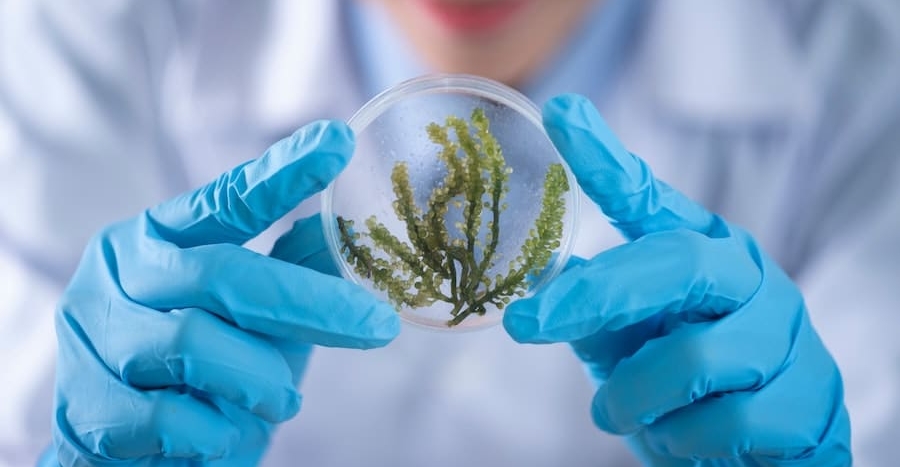Plant-based chemistry, a promising sector

Packaging, cosmetic ingredients, hygiene products… More and more, products derived from plant-based chemistry – also known as bio-based products – are finding their way into consumers’ daily lives.
And while this sector does tend to revitalise regions and create jobs, it is today challenged above all from an ecological perspective. The objective? To achieve an environmental impact equal to or better than that of fossil-based products.
Cutting to the chase, discover in the following article the principle of plant-based chemistry and its place in relation to the major environmental and social challenges facing humanity.
What is plant chemistry?
Plant-based chemistry consists of producing products and/or chemical substances of all types from plant biomass, as opposed to fossil fuels (oil, coal). This plant biomass includes agricultural and forestry products, waste and plant residues.
To transform these raw materials, the plant-based chemistry and industrial biotechnology sectors leverage several stakeholders:
- Firstly, the agro-industrialists, for collecting agricultural products and primary processing;
- In a second phase, chemists or companies specialising in industrial biotechnology.
But that’s not all… The plant-based chemistry people also work with a wide range of market sectors, including speciality chemicals (solvents, paints, detergents, etc.), cosmetics, materials and energy.
A sector meeting today’s challenges
As you can see, the development of plant-based chemistry offers new opportunities, both in the agricultural and manufacturing sectors. But job creation is not the only challenge facing this burgeoning sector.
Plant-based chemistry is a response to environmental issues
By using plant biomass, plant-based chemistry can replace molecules derived from fossil fuels. And this diversification of raw materials is not without its consequences: by reducing our dependence on fossil-based products, we are also reducing the impact of price volatility for these products.
What’s more, products derived from plant-based chemistry help reduce the carbon footprint of industry and consumers. During photosynthesis, plants capture CO2 from the air and convert it into O2. Through this process, plants store carbon which is used to make bio-based products. Thus, the quantity of fossil CO2 released into the atmosphere as plants compost will be reduced.
An ever-increasing demand for transparency
Increasingly, consumers are turning to products that are not harmful to their health or the environment. This trend for “authentic, healthy and safe products” is also underpinned by a strong demand for transparency regarding the composition of products. The implementation of traceability, labelling and certification processes is gradually making it possible to meet this challenge.
Products from plant biomass also meet this growing consumer demand.
Towards new properties
Transparency, strength, lightness… The development of bio-based products has made it possible to create materials with new properties. These are responding to an ever-increasing need for chemical industries and manufacturers to expand their range of raw materials and to offer consumers ever more innovative products.
Thanks to the green light given by key stakeholders (political, scientific, industrial, agricultural, etc.), the plant-based chemistry sector seems to have a bright future ahead. However, in order to achieve the energy transition, it will be necessary to combine this adaptive sector with other sectors, including, for instance, renewable energy.